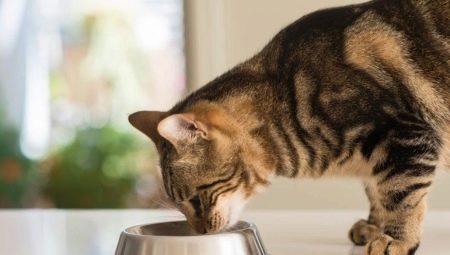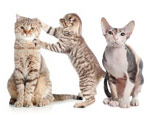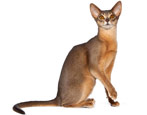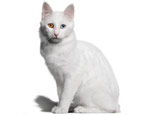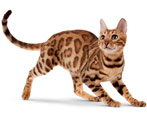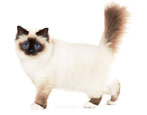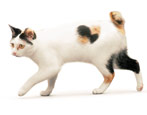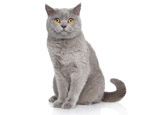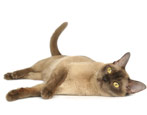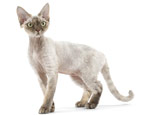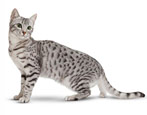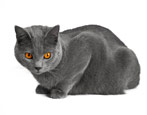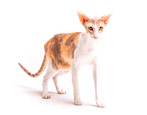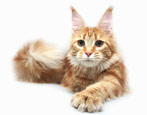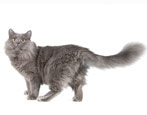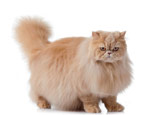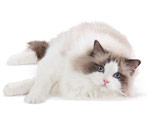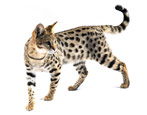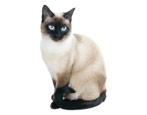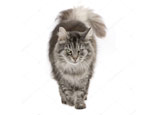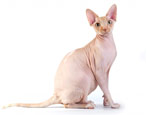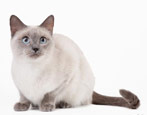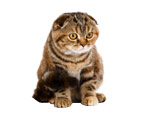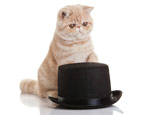Often, many owners of domestic tailed cats decide to castrate (sterilize) their pet. In modern veterinary medicine, such a method in limiting the function of reproduction of offspring is considered civilized and humane. With the help of such a simple operation, the owners solve several problems at once in the maintenance of their pet: anxiety in the behavior of the animal disappears, “unexpected dirty tricks” are much less common, the problem of the fate of numerous offspring and its transfer to good hands is eliminated.
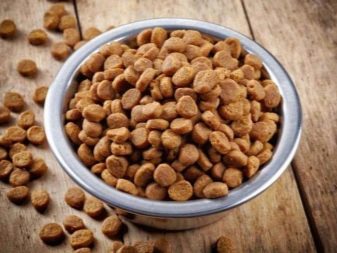
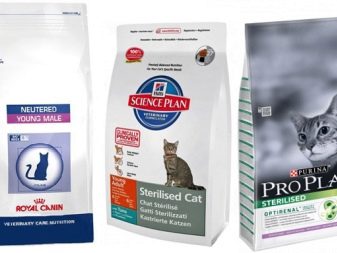
The consequences of the procedure
In this article we will talk about the features of caring for sterilized cats, in particular, about their diet. At first glance, castration of a pet is a wise decision. However, it must be understood that depriving an animal of the nature given him the ability to reproduce posterity entails many risks associated with a change in his health.
- Hormonal changes, the restructuring of all organs and systems.
- A sterilization operation is a considerable stress for a young animal. The owner needs to be prepared for the fact that his pet in the first week (or even more) after such a procedure will be very depressed, passive and anxious.
- A consequence of the hormonal background restructuring will be a noticeable decrease in the physical activity of the purr, as a result of which problems with excess weight may appear.
- Following a change in the functioning of the genitourinary system, the risk of stone formation in the kidneys and bladder increases.
- The condition of the coat, teeth, and claws can noticeably change.
The decreased interest in the opposite sex in sterilized (neutered) cats is made up for by an increased interest in nutrition. After the pain after the operation is left behind, the cat can circle for days on end near its bowl in anticipation of the next portion of the treat.
It is not recommended to abruptly abandon the usual diet and change the taste habits of a pet.
However, it should be understood that in connection with the new features of the processes occurring in the animal’s body, great attention must be paid to the quality of nutrition of a cat or cat in order to maintain the health and harmonious functioning of all organs and systems.
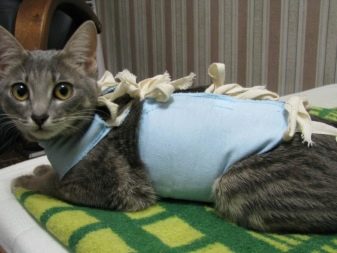
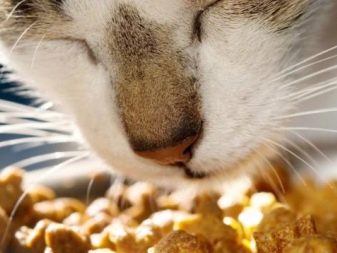
Power Features
Consider why you need special food, and how it differs from ordinary. As noted above, due to physiological changes in a neutered cat (sterilized cat), mobility decreases.
In order not to encounter obesity and related problems (diabetes, stones) in the future, food must be selected with a lower fat content and an optimal ratio of protein and carbohydrates.
Some manufacturers of specialized cat foods have taken care of the prevention of cardiovascular diseases by adding L-carnitine to the cat's treat, which favors the conversion of fat into muscle tissue.
For the prevention of urolithiasis, which is more susceptible to sterilized cats, feeds are used that contain special components to better remove fluid from the animal's body, eliminate sediment and sand in the urine. Such components are absent in regular budget feeds for non-sterile pets - this is an important difference.
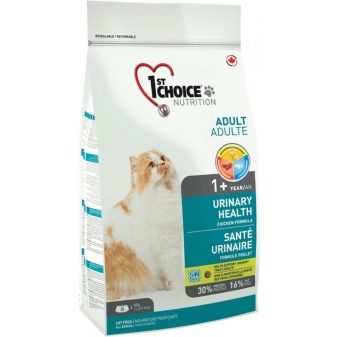
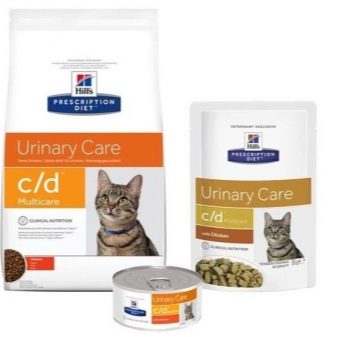
To maintain a healthy condition, the pet's hair, claws and teeth need to choose foods rich in calcium, phosphorus, iron and magnesium. Tartar formation is an unpleasant and difficult problem. Therefore, feeding exclusively wet foods is not recommended. A harmonious combination of dry and wet food will eliminate the possibility of tooth loss and diseases of the gastrointestinal tract. Coarse feed will also contribute to more frequent fluid intake, which will reduce the risk of urinary stones.
There are also differences in the nutrition of sterile cats and cats. Ladies are more prone to problems with overweight, and the stronger sex of domestic cats is more likely to suffer from the formation of stones in the bladder. Special feed takes these features into account, while conventional feed for non-sterile pets is rarely sex-specific.
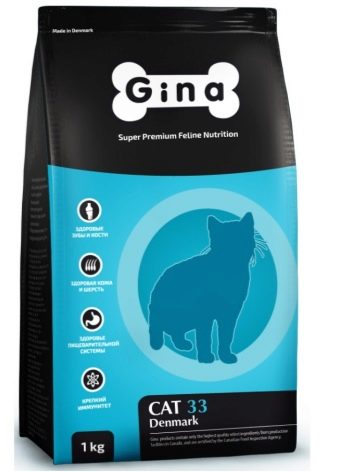
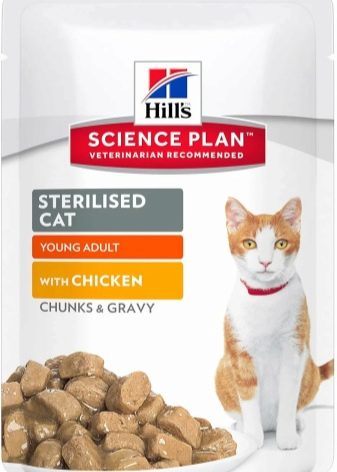
The next step after choosing a specialized food for your pet will be to determine the dosage. The manufacturer always indicates the recommended portioning on the pack depending on the weight, age, breed and behavioral characteristics of your pet (for example, food for active cats, for the elderly). As a rule, on the back of the pack with the product there is a table where the daily rate and dosage are indicated in accordance with the weight of the animal.
Veterinarians recommend fractional meals in small portions (2-4 times a day).
Thus, it is possible to satisfy the increased interest of the castrated animal in food, while eliminating the possibility of overeating. Properly weigh the pet and choose the right food will help in the veterinary clinic.
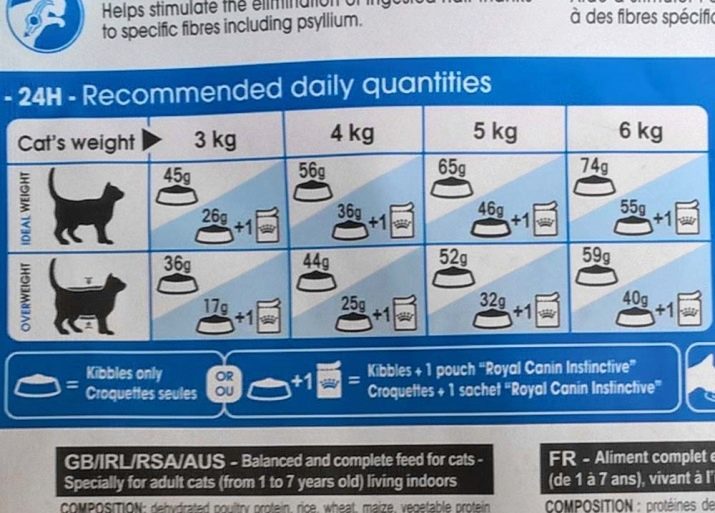
A castrated cat can be fed with regular food. The main thing is to timely pay attention to the slightest negative changes in his state of health. First of all, unfortunately, animals that have undergone sterilization suffer from urolithiasis. And if the owner’s choice in the pet store or pet food department has stopped at the usual feed, he should be sure that his pet does not have cystitis symptoms: the tailed one does not sit for a long time in the tray, does its work quickly and accurately,the color and smell of the cat's filler does not cause alertness after the pet has gone a little.
In addition to specialized food, it is not recommended to exclude natural and vegetable products from the diet of a sterilized cat: do not be afraid to delight your pet with slices of raw and boiled meat, fish, hard vegetables to maintain healthy teeth and increase the dietary fiber. Sour-milk products (milk, sour cream) should also be present in the diet of a castrated cat to maintain digestion.
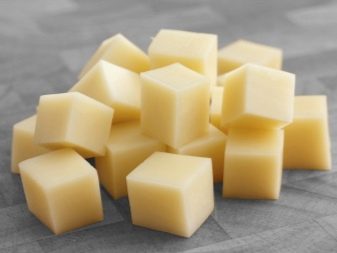

Manufacturers rating
Let’s figure out which manufacturers and brands of feed should be selected for sterilized cats. The modern market for the animal feed industry is represented by a wide variety. Fortunately, manufacturers willingly take care of maintaining the healthy life of our furry favorites. But not every owner can afford to purchase premium food. Among the most popular and relatively affordable brands, several brands can be distinguished.
- Pro plan rich in a variety of flavors: with turkey, with salmon, with chicken, with a rabbit. Launches the specialized Derma series for pets suffering from problems with coat and allergies. Of the healing properties, one can also note the rich content of fiber, which contributes to proper digestion and elimination of hairballs.
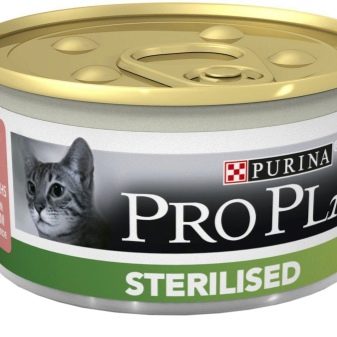
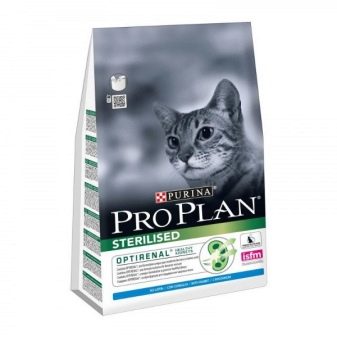
- Royal canin launches the Sterilised series specifically for castrated cats and sterilized cats, it helps to fight excess weight, and also contains a number of therapeutic components. Of the minuses, a high content of chicken protein can be noted, which is not suitable for cats prone to allergies.
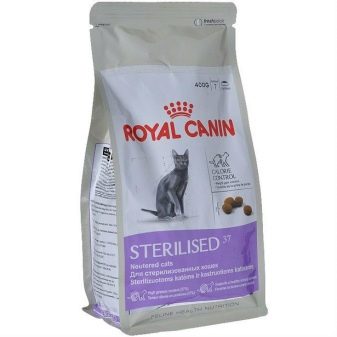
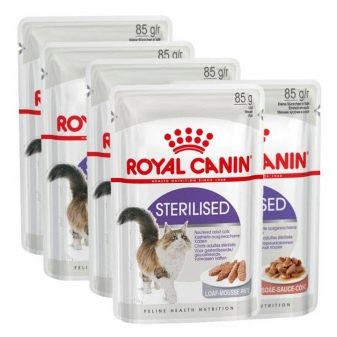
- Holistic - dry food, which is based on meat and cereals. It contains up to 15% of natural beef, and the cereal basis is rice, which contributes to good digestibility. This brand is also rich in vitamins to maintain a healthy coat.
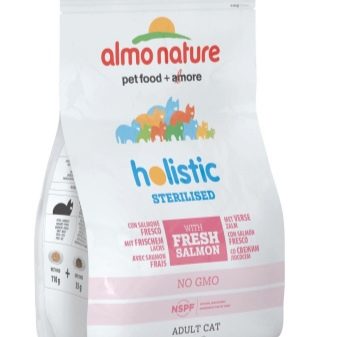
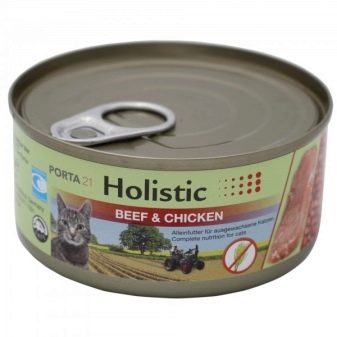
Royal Canin Sterilized Cat Food Overview
